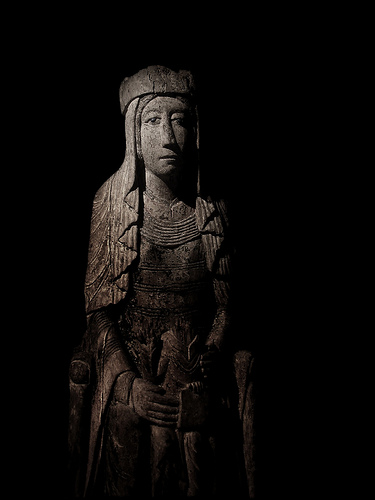Everything in the beginning of Matthew’s Gospel – which tells of God doing this wondrous thing in the birth of Jesus – seems to point backwards.
Matthew begins his Gospel with a genealogy, starting with the Patriarch Abraham. Then we have the reference to Isaiah’s prophesy that the child shall be called “Emmanuel.” And then the child is given the name “Jesus,” which not only means “God saves” but in Hebrew it’s also the name of the one who brought the sojourning People of God out of the wilderness and into the Promised Land: Joshua.
Add to this a Joseph…who’s a dreamer…and who will go off, under duress, to Egypt…
All this Joseph needs is a fancy technicolor coat and he’d be all set.
Everything points back in time, and back into the story of God that has been going on through the ages. Of course, Matthew isn’t the only one who does this. Luke’s genealogy goes back to Adam, and John begins his Gospel “in the beginning.”
I find this intriguing because in the Incarnation, God is so obviously doing a new thing. God has become flesh. God has pitched his tent among us. God has broken into creation to forge a new covenant.
But, it’s as if this new thing can’t be told without the stories of ages past.
Perhaps it’s communicated this way so that the first generations of Christians could tell others that while it was a new thing, it wasn’t out of nowhere. This new thing has deep connections to what God has always been doing.
On the other hand, it may be because God was weaving the story with the same threads he’s always been weaving.
The God who was with Abraham, Isaac and Jacob is…with us (Emmanuel). The God who brought his people into the Promised Land…saves us (Jesus) still.
